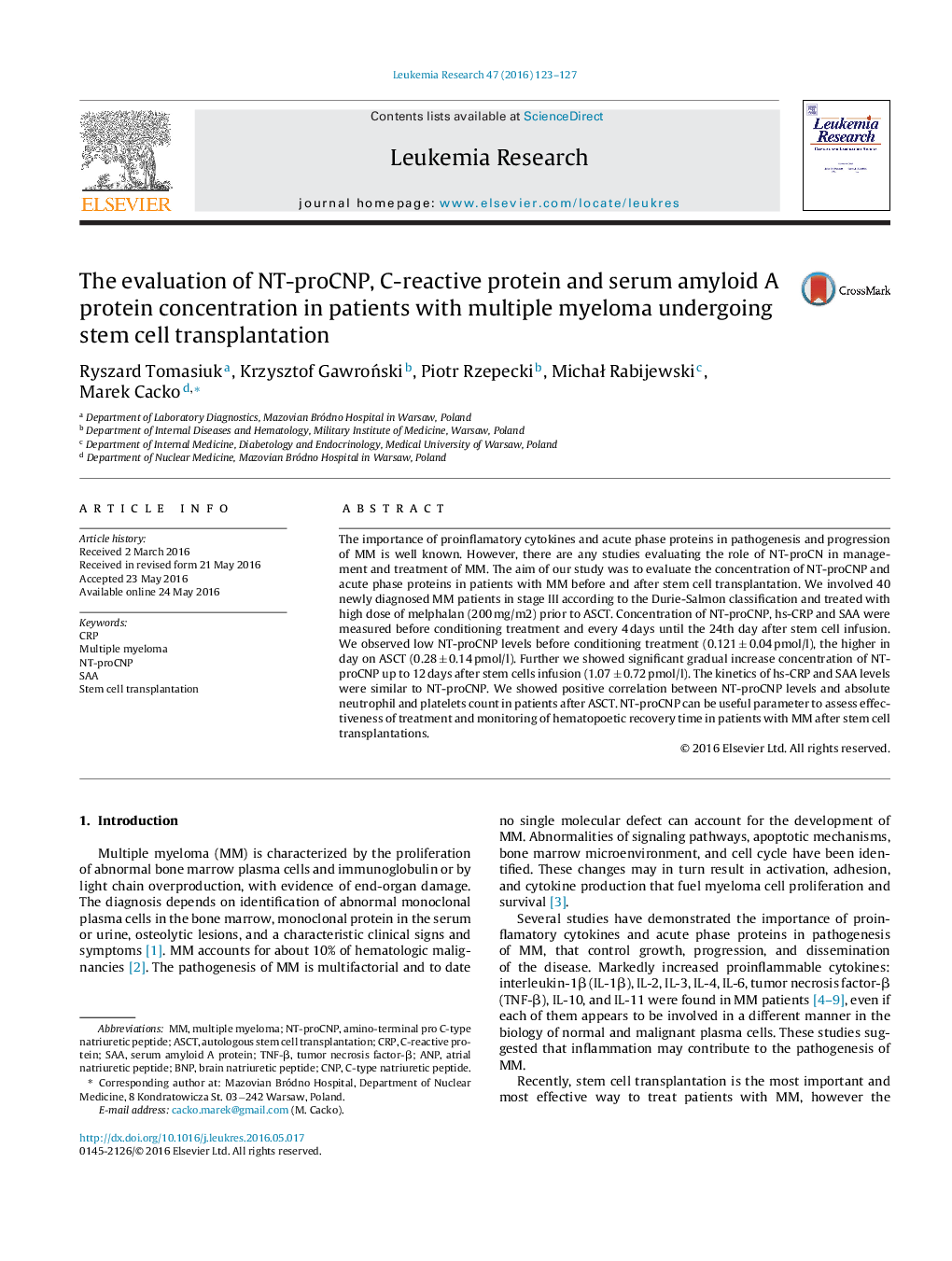| Article ID | Journal | Published Year | Pages | File Type |
|---|---|---|---|---|
| 2136445 | Leukemia Research | 2016 | 5 Pages |
•Stem cell transplantation is the most important way to treat patients with MM.•C-type natriuretic peptyde is a proinflammatory peptide.•We see positive correlation between NT-proCNP and hematopoetic system regeneration.•NT-proCNP may reflect the dynamics of the inflammatory process in these patients.•NT-proCNP can be a useful parameter to evaluating effectiveness of treatment in MM.
The importance of proinflamatory cytokines and acute phase proteins in pathogenesis and progression of MM is well known. However, there are any studies evaluating the role of NT-proCN in management and treatment of MM. The aim of our study was to evaluate the concentration of NT-proCNP and acute phase proteins in patients with MM before and after stem cell transplantation. We involved 40 newly diagnosed MM patients in stage III according to the Durie-Salmon classification and treated with high dose of melphalan (200 mg/m2) prior to ASCT. Concentration of NT-proCNP, hs-CRP and SAA were measured before conditioning treatment and every 4 days until the 24th day after stem cell infusion. We observed low NT-proCNP levels before conditioning treatment (0.121 ± 0.04 pmol/l), the higher in day on ASCT (0.28 ± 0.14 pmol/l). Further we showed significant gradual increase concentration of NT-proCNP up to 12 days after stem cells infusion (1.07 ± 0.72 pmol/l). The kinetics of hs-CRP and SAA levels were similar to NT-proCNP. We showed positive correlation between NT-proCNP levels and absolute neutrophil and platelets count in patients after ASCT. NT-proCNP can be useful parameter to assess effectiveness of treatment and monitoring of hematopoetic recovery time in patients with MM after stem cell transplantations.
